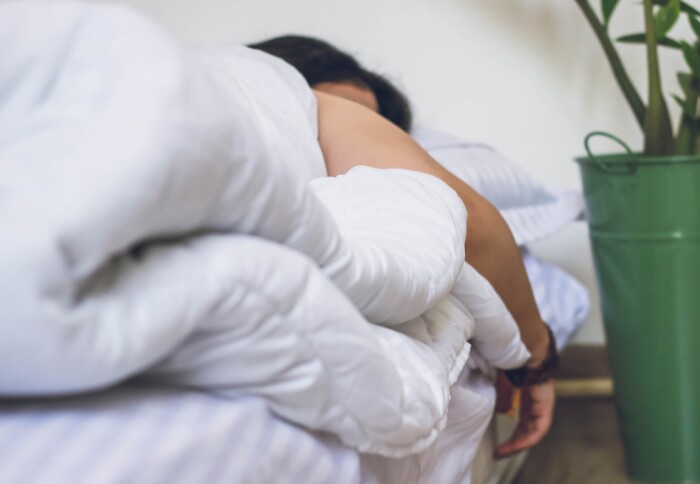New research to track sleep with innovative sensor to help diagnose dementia
by Meesha Patel

Researchers at Imperial, UK Dementia Research Institute, UCL and Newcastle University will develop technology to identify people at risk of dementia.
The major new project, funded by the National Institute for Health and Care Research, will use a sleep sensor mat and a ‘digital biomarker’ to track 250 individuals of the Insight 46 study and observe which individuals have evidence of poor brain health.
The ‘digital biomarker’ created by Dr Eyal Soreq and team at the UK DRI Care Research & Technology Centre at Imperial College London is the outcome of a three-year collaboration with a technology company Withings, using their Sleep Analyzer tracking mat. Researchers compared sleep patterns of people living with dementia to data that equates to 3.7 million nights of sleep in the general population to create the biomarker that unveils a signature characteristic of sleep disorders commonly observed in people with dementia. This new project hopes to extend this approach to see if it is possible to identify individuals at risk of developing dementia.
"This is a very exciting opportunity to explore whether new digital monitoring technology can be used to identify early signs of neurodegeneration in the brain." Prof David Sharp Department of Brain Sciences, UK DRI
Disrupted sleep is a common symptom experienced by people living with dementia, but it is still unknown if this is a result of the disease or a driving factor in the disease progression. Growing evidence suggests that long-term sleep disturbances could be a risk factor for dementia, and scientists are working to uncover the mechanisms behind this potential link.
Project lead Prof David Sharp, Professor of Neurology at Imperial College London and Centre Director of the UK DRI Care Research & Technology Centre, said: “This is a very exciting opportunity to explore whether new digital monitoring technology can be used to identify early signs of neurodegeneration in the brain. If successful, the work will provide a completely new method for dementia screening.”
Analysing sleep patterns
This study will use participants of the Insight 46 study, which is drawn from members of the MRC National Survey of Health and Development (NSHD) 1946 British Birth Cohort. These individuals are all born within the same week in 1946, and now are 77 years old. This group have been studied throughout their lives and have had detailed investigations of their brain health. Researchers will compare the sleep data from 250 participants of this study with their brain scans and health data to see if it is possible to predict which members could be at risk of dementia.
To monitor sleep, Sleep Analyzer tracking mats will be placed underneath a person’s mattress and can detect heart rate, respiration rate, sleep phases and when the person gets in and out of bed. The mat, which is low cost and unobtrusive, is a medical device that can also detect sleep apnea and snoring time. The data will be sent back to the research team in real time using cellular data network, so it is easy for participants to use.

Meanwhile a team from Imperial’s Helix Centre and Newcastle’s Centre of Excellence in Dementia Research will work with members of the public, and health and social care professionals, to design a service that could be used to assist dementia diagnosis using the digital biomarker in the NHS.
The team will co-design the service with representative users, and explore issues around acceptability, accessibility and understanding the consequences of the data.
This article has been adapted from a news story by the UK Dementia Research Institute.
Article supporters
Article text (excluding photos or graphics) © Imperial College London.
Photos and graphics subject to third party copyright used with permission or © Imperial College London.
Reporter
Meesha Patel
Faculty of Medicine Centre